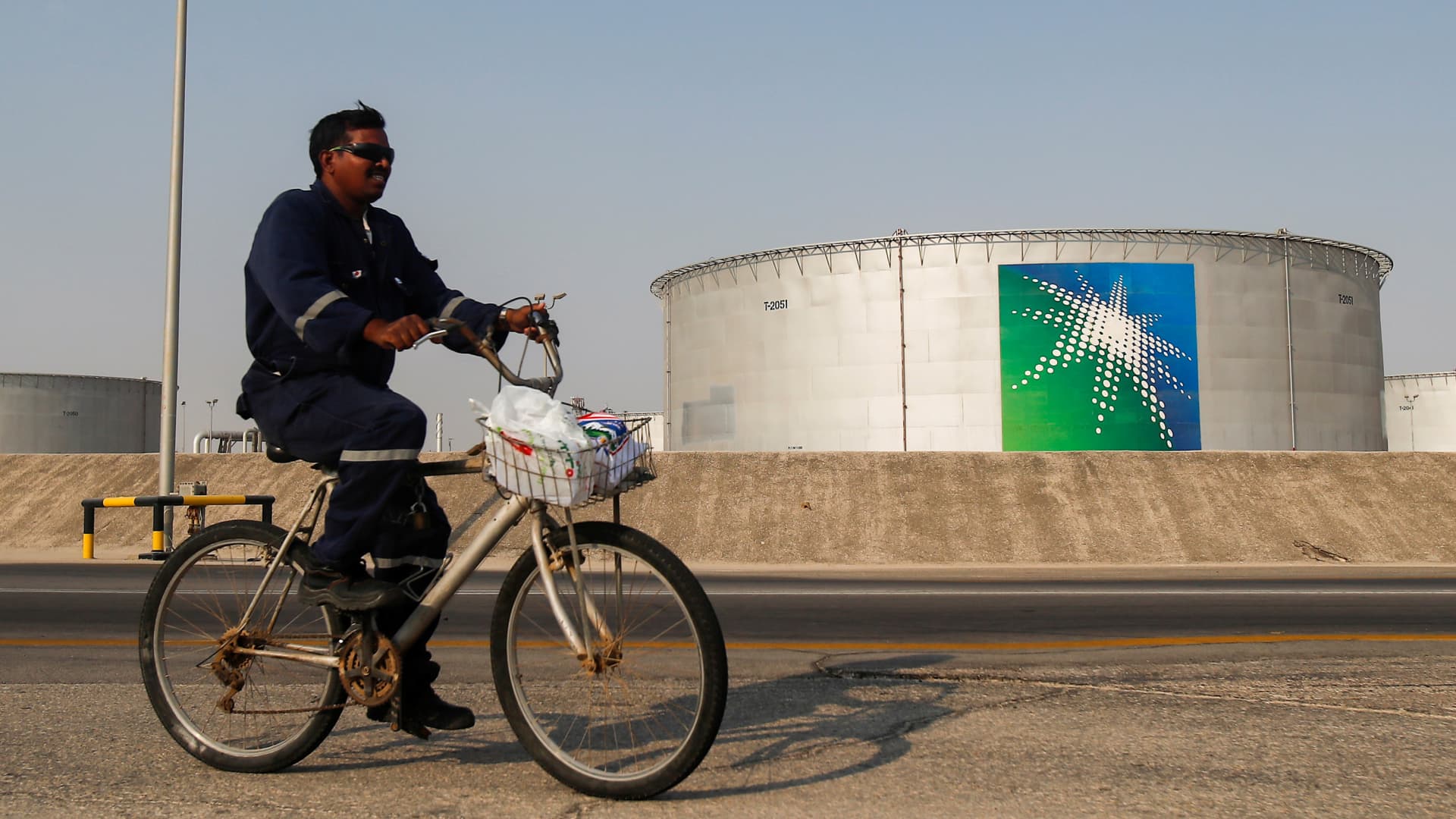An employee rides a bicycle next to oil tanks at the Saudi Aramco oil facility in Abqaiq, Saudi Arabia, on Oct. 12, 2019.
Maxim Shemetov | Reuters
Oil rose more than 3% on Wednesday as tensions mount in the Middle East and OPEC pledges to remain united in supporting prices.
The West Texas Intermediate contract for February gained $2.31, or 3.28%, to trade at $72.72 a barrel. The Brent contract for March added $2.32, or 3.06%, to trade at $78.21 a barrel.
Houthi militants, who are based in Yemen and backed by Iran, claimed Wednesday that they targeted the CMA CGM Tage container ship. French shipping giant CMA CGM told CNBC in a statement that the vessel “did not suffer any incident.”
This comes a day after Danish shipping giant Maersk halted all shipping through the Red Sea until further notice due to repeated Houthi attacks on vessels.
Oil prices have been volatile this week, with U.S. crude and the global benchmark settling more than 1% lower on Tuesday despite Maersk’s decision to continue avoiding the Red Sea due to attacks by the Houthis.
“We haven’t seen prices react much in part because fundamentals are softer for crude right now,” Amrita Sen, founder and director of research at Energy Aspects, told CNBC on Wednesday. “We’ve seen some inventory builds toward year end and that’s why the market just isn’t sensitive to this.”
“Even if there are attacks we’re not expecting any oil supply losses on the back of it,” Sen said. “The market is going to look for specific supply disruptions that actually helps tighten balances before we see a significant increase in prices.”
Protests in Libya have also shut down the Sharara oil field, which produces 300,000 barrels per day, two engineers told Reuters on Wednesday.
OPEC and its allies issued a statement Wednesday pledging to remain united in the group’s “efforts to maintain oil market stability going forward.” Several members of the group pledged in November to cut 2.2 million barrels per day through the first quarter of this year to support prices.
Traders have been skeptical of that pledge because it is voluntary and OPEC has struggled to maintain a united front. The promised voluntary cuts have done little to support prices as the U.S. pumps crude at a record clip and demand weakens in China.
U.S. crude and the global benchmark fell more than 10% in 2023 on worries that the market is oversupplied.
Don’t miss these stories from CNBC PRO:

